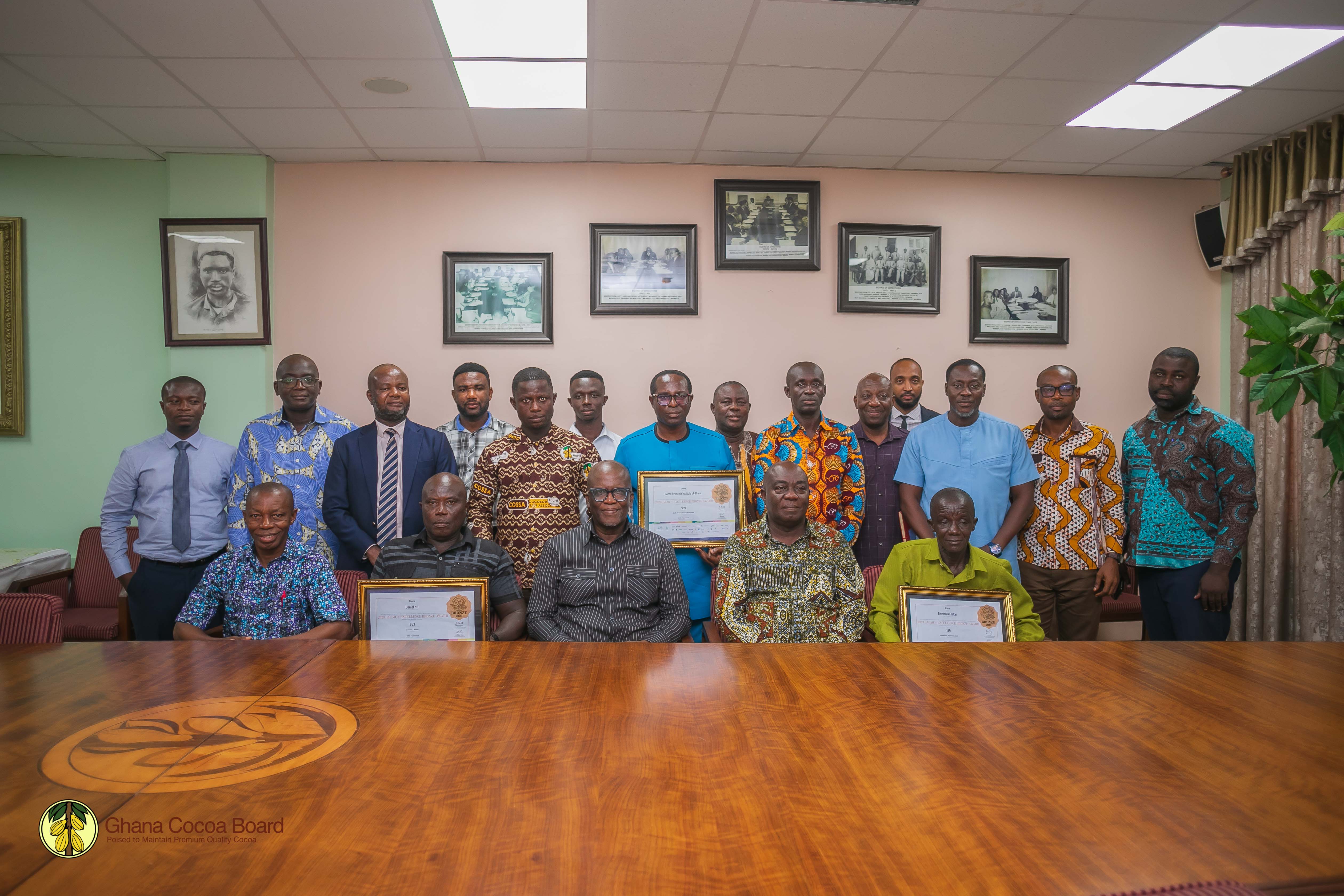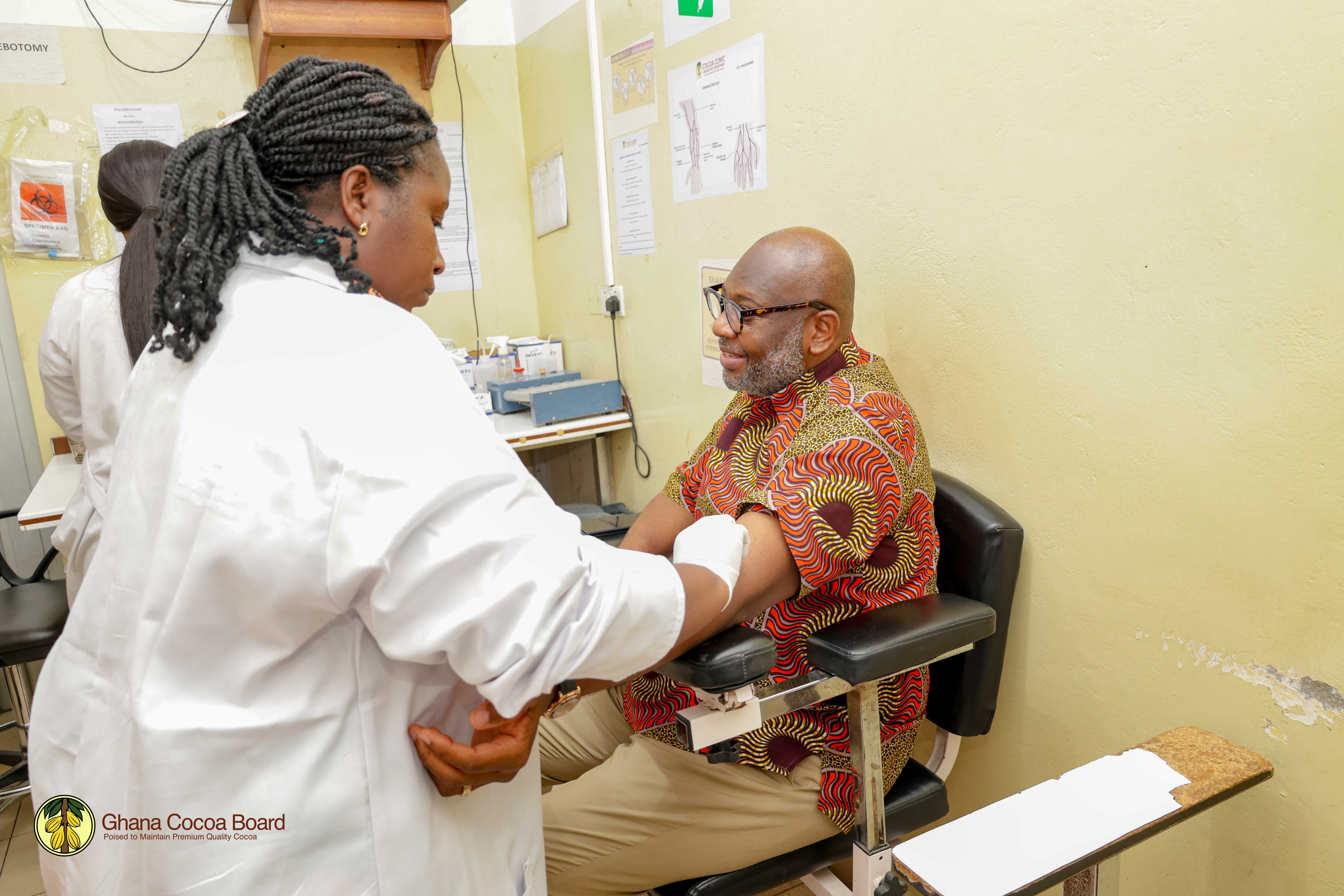COCOA RESEARCH INSTITUTE OF GHANA (CRIG): PIONEERING COCOA SUSTAINABILITY AND INNOVATION IN GHANA
Date: 29th September 2023
The Cocoa Research Institute of Ghana, a Division of Ghana Cocoa Board (COCOBOD) was established in June 1938 at Akim Tafo in the Eastern Region. It was formerly named Tafo Central Cocoa Research Station and its mandate was to investigate problems of pests and diseases, which had considerably reduced cocoa production in the region.
The station owes its establishment to Sir Frank Stockdale (the Advisor to the Secretary of State of the British Colonies) who recommended the setup of the research station during his visit to West Africa in 1935.
In 1944, the station was upgraded to the West African Cocoa Research Institute (WACRI), while maintaining its headquarters at Akim Tafo with sub-stations at Moor Plantation in Ibadan, Nigeria and Sierra Leone. After the attainment of independence of Ghana and Nigeria, the inter-territorial basis of the Institute came to an end in 1962 and WACRI was accordingly dissolved. The Government of Ghana took over the station and renamed it the Cocoa Research Institute of Ghana (CRIG).
Mandate
The Division’s mandate at its inception in 1938 was to investigate pests and diseases of cocoa in order to maintain production in the Eastern Region. In 1944, the mandate was widened to include investigation of soil fertility and agricultural practices. Since 1966, CRIG’s mandate has included research into coffee, kola, sheanut and cashew.
Mission Statement
To be a centre of excellence for developing demand-driven, sustainable and environmentally acceptable technologies which will enable stakeholders to realize the overall vision of the cocoa industry.
The Cocoa Research Institute of Ghana operates under a multi-disciplinary thrust system established in the 1990s to research into production problems of and cocoa, coffee, kola, shea and cashew and to contribute effectively to the fulfilment of COCOBOD’s vision to increase productivity at the farmer level. The Thrust System has been largely successful in knowledge exchange between scientists of different disciplines.
There are currently six Thrusts which include, Soil and Crop Management Thrust, Crop Improvement Thrust, Insect Pests Management Thrust, Plant Diseases Management Thrust, Post-Harvest Quality Management Thrust and System Assessment and Analysis Thrust.
I. Soil and Crop Management Thrust
This Thrust is mostly concerned with problems of climate, soil and crops, and the development of appropriate technological packages to achieve optimal growth.
II. Crop Improvement Thrust
It focuses mainly on the development of high-yielding planting materials with improved tolerance to pests, diseases and drought for the mandate crops.
III. Insect Pests Management Thrust
The Thrust is concerned with the biology and ecology of the arthropod fauna of mandate crops. Finding and validating solutions to improve insect identification and management methods and promoting sustainable use of conventional and biological pesticides.
IV. Plant Diseases Management Thrust
The focus of this Thrust is to employ general disease control strategies in plant virology, mycology, nematology, bacteriology and parasitology to manage diseases of CRIG mandate crops.
V. Post-Harvest Quality Management Thrust
This Thrust is concerned with the following: development of novel food products, value addition and product diversification and new techniques in processing, preservation, packaging and storage; Physiological and pre-harvest conditions affecting commodity quality.
VI. System Assessment and Analysis Thrust
The focus of this Thrust is to address socioeconomic issues relating to farmers through adoption, diagnostics and impact assessment studies of farms or farmer interventions and build statistical and socio-economic support for research in other thrusts.
About five years ago, CRIG set up the New Products Development Unit to conduct research into the development of new products from cocoa pod husk, pulp juice, discarded beans and wastes of other mandate crops (cashew and shea).
The by-products include Cocoa Wine, Cocoa Brandy, Cocoa Gin, Cocoa Vinegar, Cocoa Jam, Cocoa Butter Body Pomade, Cocoa Butter Soap, Cocoa Butter Moisturising Soap (Alata Samina), Cocoa Butter Lotion, Roasted Cashew Nuts, Cashew Apple Jam, Shea Butter Soap, Shea Butter Pomade, Shea Butter Lotion, Shea Butter Moisturising Soap (Alata Samina), Shea ‘Alata Samina’ Shower Gel, among others.
These products developed at CRIG have passed quality assessment by Ghana Standard Authority and have been registered by the Food and Drugs Authority.
Over the years, CRIG has supported Ghana’s cocoa sector in achieving;
• Development of early-bearing and high-yielding crop varieties
• Control of capsids by spraying with specific insecticides
• Characterization of cocoa swollen shoot disease as caused by a virus, discovery of mealy bugs as vectors of the virus and control of the disease
• Mass hand pollination of clonal seed garden for large-scale production of seedpods
• Understanding of cocoa fermentation and flavour chemistry
• Production of pectin, alcohol and alcoholic beverages, animal feed, soap and cosmetics as by-products from cocoa, cashew and shea wastes
• Development of agronomic packages guaranteeing yield of over 3 tonnes/ha for cocoa and coffee.
• An improvement in post-harvest management of cocoa and improved quality of Ghana cocoa beans. Currently, the laboratory manufactures two (2) different chocolate types; dark and milk and also has about seven (7) flavours namely lemon, mint, coffee, pineapple, vanilla, ginger and caramel.
• The implementation CODAPEC & HITECH programmes and the PEPs based on innovations developed by CRIG. These programmes continue to receive technical backstopping from CRIG.
• The training of staff of the Cocoa Health and Extension Division (CHED) and Quality Control Company Ltd. (QCC) who then go on to train farmers on the effect of post-harvest practices on Flavour development. Some farmers who have benefited from the training now voluntarily send their beans to the laboratory for testing.
Other News / Articles you might be interested in.

COCOBOD HONOURS GHANAIAN COCOA FARMERS FOR EXCELLENCE AT INTERNATIONAL COCOA AWARDS
Management of Ghana Cocoa Board (COCOBOD) has honoured the winners of the 2023 International ...
Read More
DR. RANSFORD ABBEY LEADS BY EXAMPLE, UNDERTAKES ANNUAL MEDICAL EXAMINATION AT COCOA CLINIC
The Chief Executive of the Ghana Cocoa Board (COCOBOD), Dr. Ransford Abbey, has ...
Read More
COCOA MEDIA HUB LAUNCHED TO ENHANCE OPEN GOVERNANCE AND FARMER ENGAGEMENT
Ghana Cocoa Board, along with various stakeholders, has participated in the official launch ...
Read More